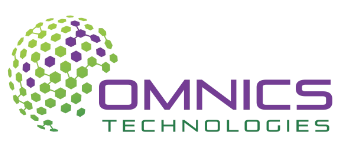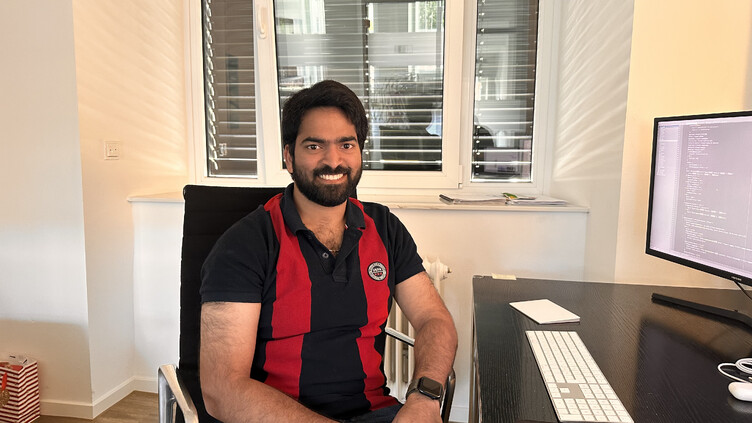Five Questions for Raviteja Sannagiri, Co-Founder of Omnics Technologies und Head of IT at BitKollegen GmbH
Founding and building a company on a different continent sounds scary. But what about moving to a different continent and found a company in your home country with founders from abroad? Raviteja Sannagiri did it and in this interview, he shares his story, his takeaways on German an Indian Work-Culture and his future plans.
Ravi, why Germany?
I´m from Hyderabad in the State of Telangana, India, and I moved to Germany (Magdeburg) in the year 2018. Even before moving here, I was very fond of the European and especially the German work culture. First, the idea of a free way of working, thinking capabilities and the concept of Work-Life-Balance attracted me and I was eager to know more about it.
I decided to come to Germany to study machine engineering because of the sophisticated universities and the high level of scientific excellence. In addition, Germany also has a very well-known excellence in engineering, especially in the field of renewable energy and the automotive industry – fields that were the focus of my studies. I started a master’s thesis here in 2016 on the concept of a car powered by a solar roof and was thrilled with how much input and how much support I received in tackling this exciting topic.
How did you experience Germany and the German work culture?
Before I came to Germany, I had worked for two years until 2018 at one of the largest IT outsourcers based in India for a client based at UK in the health sector. At the time I found out that Europe and India have very different work environments.
In India (and other countries) there often is a lot of micro-management which keeps – in my opinion – people from thinking creatively. So, the opportunity for me to work independently and self-determined is an immense advantage. In India, in my experience, it is a very significant part of the work culture to be focused on getting employees to put in as many hours as possible and less on the outcome. From my point of view, it is often neglected that a good work-life-balance leads to employees being more satisfied and consequently more motivated and goal-oriented in their work.
How did you come to found a multi-national IT-outsourcing-company with your German co-Founders?
During the pandemic, my studies in Magdeburg came to an end – although successful – I at first did not find a job in my core engineering. So, decided to broaden my search and shift to IT, as it was not a new field for me, because of my previous experience in India.
In the process, I also applied for an IT-Job to RGC Manager, a legal-tech unit of the law firm Ritter Gent in Hanover, which develops and offers compliance software for the energy-intensive industry. My co-founders from Omnics, Franziska and Florian, were Managing Director and Head of IT of RGC Manager respectively at the time, BitKollegen co-founder Kai Gent is one of the founders of RGC Manager.
Florian, Franziska and Kai have worked with IT outsourcing service providers for many years, most recently from Belarus and Vietnam. Shortly after I began to work at RGC, we started looking for better IT outsourcing opportunities. After overlooking the market, we found that the service providers who made offers to us did not meet our requirements in several aspects. In many cases, they charged very high hourly rates, of which only a fraction, sometimes less than a third to be reached to employees. The companies were also often below our requirements when it came to ensuring working conditions. Since I had a good network and many contacts in the IT scene in Hyderabad, firstly, through my former fellow students, we decided that we could do it better ourselves and hired some freelancers. But soon we realized that this was also problematic in certain respects. For example, we could not offer them a permanent office environment, job and no company health insurance. In autumn 2021, Florian, Franziska and me travelled to Hyderabad and initiated and established Omnics.
The founding itself was also an interesting process. We were the first startup with German founders in all Telangana. Normally the founding process would take around 3-4 months but luckily because of the incredible support of the local authorities that supported the project and the international team we made it in around one month.
What are your learnings after one and a half year of providing IT-outsourcing and having a company in India?
I put a lot of effort in my idea of bringing together the Indian and the German work culture to the benefit of both. I learned that it is important to focus on the employees and their well-being more than I had experienced it in my previous job. Why? If you are treated like one in a thousand you do not feel appreciated and in consequence you may not be motivated to put your strengths in your personal and professional growth. We want our employees to be highly qualified and this takes, of course, time. If employees do not feel appreciated, they tend to change jobs often and the effort you put in team building is vain. By the way: Constant job changing is a typical Indian phenomenon, that has a lot to do with the fact that employers do not care as much about their staff as they – in my opinion – should. So, you must find a way to make employees stay, happy and loyal.
First, I tried to “translate” all the benefits I had known from work in Germany into the Indian work culture. This is no easy task, because not everything that works here does work in India. For example, a quality health insurance is what at least half of the Indians cannot afford. A special benefit is to provide this also to include their families.
Then I wanted to address the process of freedom for thinking and creativity. Employees that come from a culture of micro-management are often lost at first sight. So, we try to go step by step to encourage them to start thinking independently and be able to do broader tasks without constant advice.
At least it is important to create a good work environment also in social aspects, which means for me having a well-thought onboarding, successful team meetings and a good feedback culture regularly. I learned the most important criteria is trust. If you don’t let your employees down in personal situations it creates loyalty and a good team spirit.
What do you wish for the future of Omnics and BitKollegen?
I look forward to building a company and having many exciting experiences together with my co-founders and our employees. I hope we can grow a company that will leave a positive impact on work culture in India but also on cultural awareness in Germany. I hope we can make an example how it can work that both cultures do not “battle” but benefit from each other. For example, I wish to show other people or companies in India how a good work-life-balance can be managed. And I want to show young people that come from universities that they do not necessarily have to move US or Europe to have these benefits.


 Foto: John Schnobrich / Unsplash
Foto: John Schnobrich / Unsplash